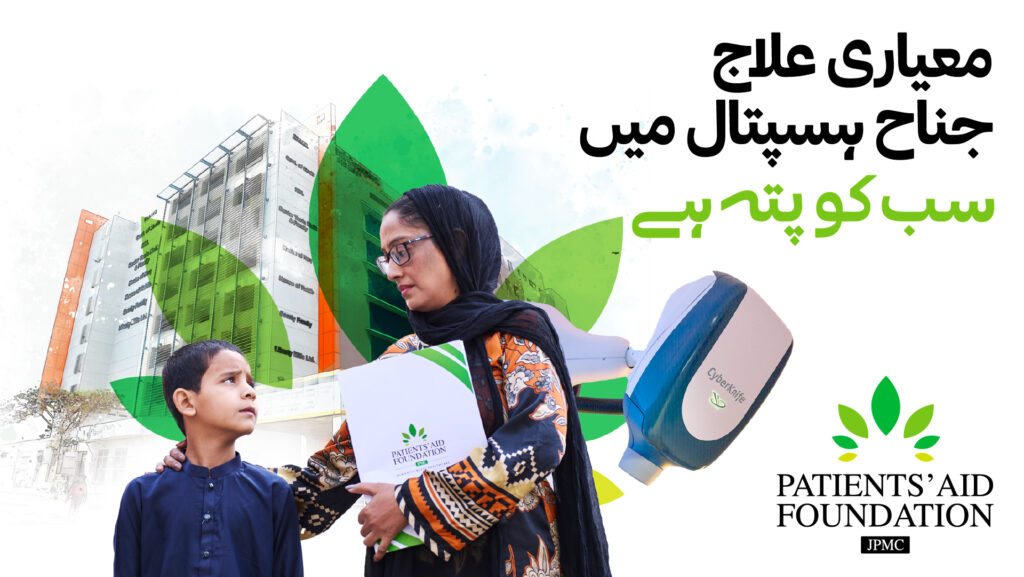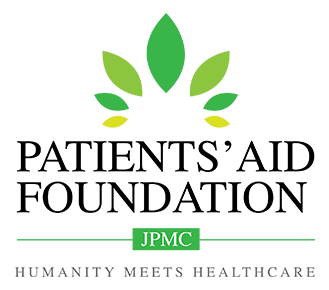Together with Patients’ Aid Let’s Break the Silence Around Stress in Pakistan
Stress is an invisible burden that many of us carry unknowingly, often manifesting in various forms, whether it’s academic pressure, financial strain, healthcare difficulties, or emotional struggles. In Pakistan, this issue has become a silent epidemic, affecting people of all ages, professions, and backgrounds. From students facing academic pressure, to young adults uncertain about their future, to caregivers overwhelmed by the emotional toll of looking after loved ones, stress knows no boundaries. The emotional weight of mental health struggles, financial worries, and physical health challenges are deeply interconnected, making stress a pervasive part of daily life for millions.
Why Stress Awareness in Pakistan Matters
Despite its widespread presence, stress is often overlooked and under-recognized in Pakistan, where mental health awareness is still in its early stages.
According to a Gallup & Gilani Pakistan survey, 14.1% of Pakistanis frequently experience elevated stress levels in their daily lives. But this statistic likely only scratches the surface, as many individuals endure stress silently, unaware of its far-reaching impact on both mental and physical health. This lack of awareness exacerbates the problem, leaving many people untreated and suffering in isolation.
In Pakistan, stress has quietly become one of the most common struggles among youth, yet it’s rarely talked about openly. Many young people, despite their talent and determination, face constant setbacks: unemployment, low-paying jobs, academic pressure, and the overwhelming burden of family responsibilities. With rising inflation and societal expectations, they’re expected to keep going, even when they’re barely holding it together. The pressure to succeed, support their families, and settle down, all while dealing with limited opportunities, often leads to emotional burnout, anxiety, and a sense of hopelessness. For many, stress isn’t just an occasional feeling, it’s a daily reality they silently carry.
This is why Patients’ Aid continues to advocate for mental health awareness, striving to ensure that every patient, regardless of their challenges, receives the care they need, whether it’s addressing mental health issues, physical ailments, or both. The link between physical and mental well-being is undeniable, and as we observe Stress Awareness Month, it’s crucial to break the silence, initiate conversations, and provide the support necessary to tackle this growing issue.
What Is Stress?
Stress is a natural response to external pressure, whether mental, emotional, or physical. When faced with a stressful situation, the body activates its “fight-or-flight” response, releasing hormones like adrenaline and cortisol to prepare for action. Although brief moments of heightened stress can be helpful in urgent situations, experiencing stress continuously and frequently over time can seriously harm both our mental and physical well-being.
Common Physical Health Issues Caused by Stress:
- Headaches & Migraines
- Heart Disease & High Blood Pressure
- Muscle Tension and Body Pain
- Sleep Disturbances & Insomnia
- Digestive Problems
- Weakened Immune System
Left unmanaged, stress can lead to chronic conditions that affect your entire body. It is essential to recognize the symptoms early and take steps to mitigate its effects before it takes a toll on your health.
Types of Stress
Stress manifests in different ways. By understanding the types of stress, individuals can identify the symptoms and take appropriate steps toward recovery.
- Acute Stress: This type of stress is short-term and triggered by specific events or situations, such as a car accident or an important deadline. Although intense, it usually fades once the situation is resolved. For example, A person involved in an accident may experience acute stress, but once the situation is handled, the stress typically subsides. Patients’ Aid recently revamped the accident and emergency department at JPMC. Consider donating to facilitate people who need urgent medical attention and care.
- Episodic Acute Stress: Occurs when acute stress becomes frequent or recurring, often due to a demanding lifestyle or constant challenges. Individuals living with this form of stress often feel as though they are always “on edge. For example, A caregiver tending to a loved one battling cancer experiences episodic stress every time the patient faces a new treatment or medical crisis. If you want to ease the burden on these caregivers, consider supporting mental health programs at JPMC.
- Chronic Stress: Chronic stress is a long-term condition triggered by prolonged challenges, such as ongoing financial difficulties, persistent health problems, or caregiving responsibilities. For example, A mother caring for a chronically ill child may face years of continuous stress, impacting her physical and mental health. Your donations can help provide vital care for both the patient and their family, supporting long-term mental and physical health at JPMC.
Whether it’s acute, episodic, or chronic stress, each type can have serious implications for your well-being. Identifying the type of stress is the first step toward seeking the right help and support.
Symptoms of Stress
Understanding the symptoms of stress is key to identifying when you, or someone you know, needs help. Stress manifests in three primary ways:
- Emotional Symptoms: Anxiety, depression, irritability, difficulty concentrating.
- Behavioral Symptoms: Insomnia, appetite changes, increased alcohol or drug use, social withdrawal.
- Physical Symptoms: Headaches, fatigue, muscle tension, digestive issues, heart palpitations.
If you or someone you love experiences these symptoms, it’s crucial to take action. Don’t wait until stress takes a toll on your health. Donate today to support JPMC’s psychiatry and behavioural sciences ward and improve mental health resources.
Effective Strategies for Managing Stress
While stress is an unavoidable part of life, there are effective ways to manage it. By incorporating these strategies into daily life, individuals can reduce their stress levels and improve their overall well-being.
- Practice Mindfulness: Mindfulness techniques such as deep breathing and meditation can help individuals stay present and reduce anxiety.
- Set Realistic Goals: Breaking large tasks into manageable steps helps reduce feelings of overwhelm.
- Take Regular Breaks: Avoid burnout by stepping away from stressful situations and recharging.
- Engage in Creative Outlets: Hobbies like painting, writing, or music provide an emotional outlet and stress relief.
- Laugh More: Laughter releases stress-reducing endorphins and promotes relaxation.
- Limit Caffeine: Excessive caffeine can elevate stress levels. You can also use alternatives like herbal teas, coconut water, or warm lemon water.
- Spend Time in Nature: A walk in nature can boost mental clarity and lower stress.
- Seek Professional Help: If stress gets out of your control at times, seeking professional help is imperative. Therapists and counselors can offer personalized strategies to help manage stress in healthy, constructive ways.
Overcoming Mental Health Challenges and Stress
Stress is inevitable, but it doesn’t have to define your life. With the right support, it’s possible to regain control over your mental and physical well-being. At JPMC Psychiatry and Behavioural Sciences Ward, a team of dedicated professionals provides tailored care for individuals battling stress, anxiety, and other mental health challenges. Whether you’re from Karachi or a marginalized community, JPMC is available to provide you with compassionate, accessible medical care.
Through the generosity of donors, Patients’ Aid ensures that those who cannot afford treatment receive medical care, including psychiatric services. Your donations provide essential resources, such as medication, therapy, and counseling, ensuring that no one is left behind in their journey toward healing.
Make a Difference Today By Supporting Patients’ Aid
By donating your Zakat, Sadqah, or Khairaat to Patients’ Aid, you are directly contributing to improving mental health services at JPMC. Every donation, large or small, helps provide life-changing care for those who need it most. Your kindness ensures that we can continue offering free treatments and support to patients battling stress and mental health challenges.

Donate now to bring hope, healing, and care to those who need it. Together, we can make a difference in the lives of individuals facing the daily struggles of stress.

